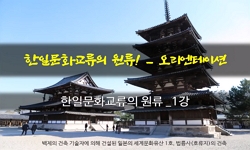본고에서는 오규 소라이의 화이론이 소라이학파 내부에서 어떻게 계승, 변용되어 갔으며 그사상사적 의미는 무엇인지 검토하였다. 소라이의 고제인 슌다이는 조선과 문명을 공유하고 있다...
http://chineseinput.net/에서 pinyin(병음)방식으로 중국어를 변환할 수 있습니다.
변환된 중국어를 복사하여 사용하시면 됩니다.
- 中文 을 입력하시려면 zhongwen을 입력하시고 space를누르시면됩니다.
- 北京 을 입력하시려면 beijing을 입력하시고 space를 누르시면 됩니다.

18세기 통신사행과 소라이학파(徂徠學派)의 화이론(華夷論) = 18th-century Tongshinsa Exchanges and Hwaih-ron Theory of Sorai School
한글로보기https://www.riss.kr/link?id=A109744363
-
저자
이효원 (인하대학교)
- 발행기관
- 학술지명
- 권호사항
-
발행연도
2025
-
작성언어
Korean
-
주제어
조선 통신사 ; 필담 ; 오규 소라이(荻生徂徠) ; 화이론 ; 예악 ; 무위 ; Choseon Tongsinsa ; brushtalk ; Ogyu Sorai ; Rituals
-
등재정보
KCI등재
-
자료형태
학술저널
-
수록면
117-146(30쪽)
- 제공처
-
0
상세조회 -
0
다운로드
부가정보
국문 초록 (Abstract)
소라이의 고제인 슌다이는 조선과 문명을 공유하고 있다는 ‘문명의식’을 바탕으로 예악을통한 상호 소통을 강조하였다. 그런데 슌다이의 제자인 칸카이는 이봉환과의 논쟁에서 일본 고유의 ‘神國觀’을 제시하여 중화문명이라는 공통의 담론 지반에 균열을 일으킴으로써 더 이상의논쟁이 불가능하게 되었다.
핫토리 난카쿠는 통신사의 시문이 시대에 뒤떨어진 것이며 일본이 앞서 있다는 인식을 보였다. 일종의 혐오와 같은 정서가 그의 발문에는 강하게 드러난다. 이러한 시각은 그의 아들 하쿠히에 이르러서는 더욱 극단화되었다. 슌다이나 칸카이가 문명의 실현 정도를 가지고 경합하고자 했다면, 난카쿠와 하쿠히는 ‘武威’에 근거하여 일본을 중화라 생각했으며 조선을 대화와 교류의 상대가 아닌 배제와 혐오의 대상으로 간주하였다.
카쿠다이와 난메이는 중국 중심의 화이론에서 탈각하여 상대주의적인 입장을 보인다. 그러나 이러한 가치 상대주의는 문명권의 보편 이념을 무화시킴으로써 상호 소통을 불가능하게 만들기도 했다. 소라이학파 내부에는 화이론에 대한 다양한 인식의 차이가 존재하는바, 근대 일본의 제국주의 행보와도 일정하게 연결되는 것으로 생각된다.
본고에서는 오규 소라이의 화이론이 소라이학파 내부에서 어떻게 계승, 변용되어 갔으며 그사상사적 의미는 무엇인지 검토하였다.
소라이의 고제인 슌다이는 조선과 문명을 공유하고 있다는 ‘문명의식’을 바탕으로 예악을통한 상호 소통을 강조하였다. 그런데 슌다이의 제자인 칸카이는 이봉환과의 논쟁에서 일본 고유의 ‘神國觀’을 제시하여 중화문명이라는 공통의 담론 지반에 균열을 일으킴으로써 더 이상의논쟁이 불가능하게 되었다.
핫토리 난카쿠는 통신사의 시문이 시대에 뒤떨어진 것이며 일본이 앞서 있다는 인식을 보였다. 일종의 혐오와 같은 정서가 그의 발문에는 강하게 드러난다. 이러한 시각은 그의 아들 하쿠히에 이르러서는 더욱 극단화되었다. 슌다이나 칸카이가 문명의 실현 정도를 가지고 경합하고자 했다면, 난카쿠와 하쿠히는 ‘武威’에 근거하여 일본을 중화라 생각했으며 조선을 대화와 교류의 상대가 아닌 배제와 혐오의 대상으로 간주하였다.
카쿠다이와 난메이는 중국 중심의 화이론에서 탈각하여 상대주의적인 입장을 보인다. 그러나 이러한 가치 상대주의는 문명권의 보편 이념을 무화시킴으로써 상호 소통을 불가능하게 만들기도 했다. 소라이학파 내부에는 화이론에 대한 다양한 인식의 차이가 존재하는바, 근대 일본의 제국주의 행보와도 일정하게 연결되는 것으로 생각된다.
다국어 초록 (Multilingual Abstract)
Hattori Nankaku showed that he believed the poetry of the communication agency was outdated and that Japan was ahead of its time. A kind of hatred is strongly evident in his writings. This view became even more extreme in his son Hakuhi. While Shun-dai and Kan-kai competed over the degree of civilization, Nankaku and Hakuhi considered Japan to be the center of civilization based on their own merits, and regarded Joseon not as a partner for dialogue and exchange, but as an object of exclusion and hatred.
Kakudai and Nanmei departed from the China-centered theory of Hwaih-ron and took a relativistic stance. However, this value relativism also made mutual communication impossible by nullifying the universal ideals of civilization.
There were various differences in perception of the theory of Hwaih-ron within the Sorai school, which seems to be connected to the imperialist actions of modern Japan.
This paper examines how Ogyu Sorai's theory of Hwaih-ron Theory was inherited and transformed within the Sorai school, and what its significance is in the history of thought. Sorai's disciple, Shun'ai, emphasized mutual communication through rites and...
This paper examines how Ogyu Sorai's theory of Hwaih-ron Theory was inherited and transformed within the Sorai school, and what its significance is in the history of thought. Sorai's disciple, Shun'ai, emphasized mutual communication through rites and music based on the awareness that Japan and Korea shared the same civilization. However, Shun'ai's disciple, Kan'kai, presented Japan's unique view of the divine nation in his debate with Lee Bong-hwan, causing a rift in the common discourse of Chinese civilization and making further debate impossible.
Hattori Nankaku showed that he believed the poetry of the communication agency was outdated and that Japan was ahead of its time. A kind of hatred is strongly evident in his writings. This view became even more extreme in his son Hakuhi. While Shun-dai and Kan-kai competed over the degree of civilization, Nankaku and Hakuhi considered Japan to be the center of civilization based on their own merits, and regarded Joseon not as a partner for dialogue and exchange, but as an object of exclusion and hatred.
Kakudai and Nanmei departed from the China-centered theory of Hwaih-ron and took a relativistic stance. However, this value relativism also made mutual communication impossible by nullifying the universal ideals of civilization.
There were various differences in perception of the theory of Hwaih-ron within the Sorai school, which seems to be connected to the imperialist actions of modern Japan.
동일학술지(권/호) 다른 논문
-
17~18세기 京畿道 安山 仍火面 洞長里洞內契 시행과 운영 구조
- 인하대학교 한국학연구소
- 한미라
- 2025
- KCI등재
-
성공회 선교사 리처드 러트(C. Richard Rutt, 1925~2011)와 20세기 후반 한국학의 발전
- 인하대학교 한국학연구소
- 이영미
- 2025
- KCI등재
-
윤리적 (불)가능성의 징후로서의 방황-정미경 소설에 대한 시론(試論)-
- 인하대학교 한국학연구소
- 유준
- 2025
- KCI등재
-
박완서 작품의 교과서 수록 양상과 문학교육적 활용 고찰-2022 개정 교육과정 반영 공통국어1ㆍ2, 문학 교과서를 중심으로-
- 인하대학교 한국학연구소
- 강정화
- 2025
- KCI등재




 KCI
KCI KISS
KISS


